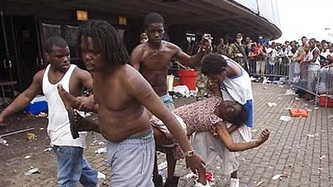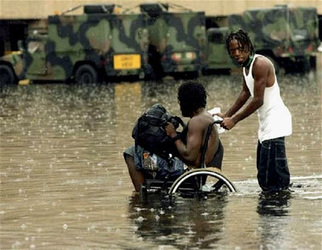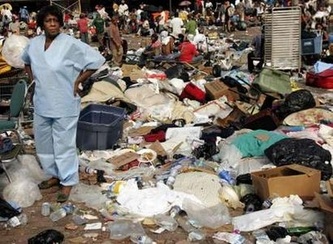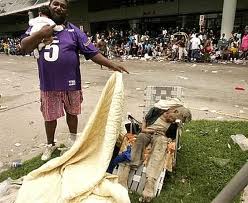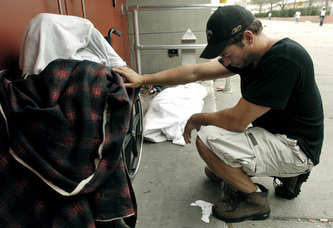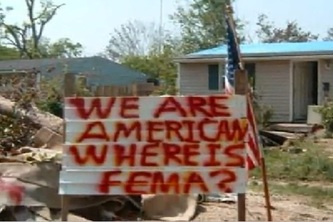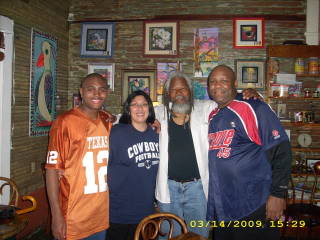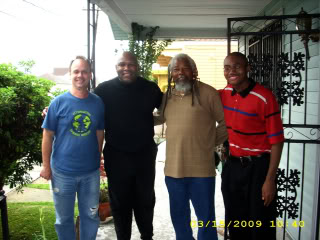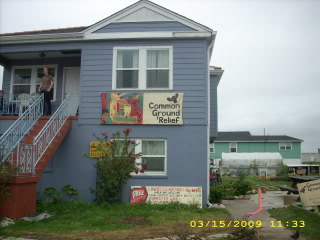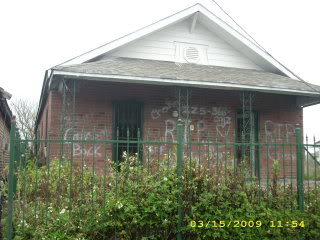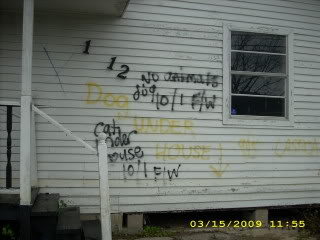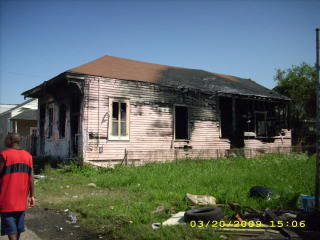Has Martin Luther King's Dream Come True, Today?
Hurricane Katrina
"One hundred years later, the life of the Negro is still sadly crippled by the manacles of segregation and the chains of discrimination. One hundred years later, the Negro lives on a lonely island of poverty in the midst of a vast ocean of material prosperity. One hundred years later, the Negro is still languishing in the corners of American society and finds himself an exile in his own land. So we have come here today to dramatize a shameful condition."
On August 28, 2005, Hurricane Katrina hit the southern coast of the United States with devastating effects. It was reported that more then 1,800 people lost there lives, and more then $81 billion dollars in damages occurred. As a result, efforts to assist those effected by Hurricane Katrina still continue, as those effected by the terrible hurricane continue to work to regain the health and livelihood that they had before the storm.
When levees in New Orleans were breached, 80% of the city was submerged by the flooding. About 20% of its 500,000 citizens were trapped in the city without power, food, or drinking water. Rescue efforts were so delayed and haphazard that many were stranded for days on rooftops and in attics before help arrived. The city became a toxic pool of sewage, chemicals, and corpses, and in the ensuing chaos, mayhem and looting became rampant—about 15% of the city's police force had simply walked off the job. The 20,000 people who made their way to the Superdome, the city's emergency shelter, found themselves crammed into sweltering and fetid conditions. At a second shelter, the convention center, evacuees were terrorized by roaming gangs and random gunfire. Relief workers, medical help, security forces, and essential supplies remained profoundly inadequate during the first critical days of the disaster.
As most of the city's citizens fled the city, those without cars or the financial means to relocate were left behind. The 100,000 who remained in the drowning city were largely poor and predominantly black, exposing the racial dimension of New Orleans’s persistent poverty: 28% of New Orleanians are poor (twice the national average) and 84% of those are black. The elderly poor were also disproportionately affected by the disaster: 70% of the New Orleans area's 53 nursing homes were not evacuated before the hurricane struck.
In sharp contrast to the leadership he displayed after the Sept. 11 terrorist attack, President Bush initially seemed off-key and out of touch, declaring that he didn't "think anybody anticipated the breach of the levees" and waiting four days before his first brief visit to the region. Trust in the president's ability to lead the country during a crisis had been a central factor in his reelection, but two-thirds of Americans considered his response to Katrina inadequate. To repair his image, Bush acknowledged the government's faltering response and pledged "one of the largest reconstruction efforts the world has ever seen."
The Mayor of New Orleans, Ray Nagin, President Bush, the federal government and FEMA were among the most criticized for their slow reaction to the emergency needed for rescue.
Many celebrities rallied together to send provisions and volunteers to New Orleans to try and help those that were still stranded there. Sean Penn, Brad Pitt, Harry Connick, Jr and many others devoted a lot of money and time to the rescue efforts. There were many benefits held and telethons aired on TV to try and raise money for the rescue relief.
There were many organizations set up to try and help as well. One of them in particular, is called Common Ground Relief, an organization that is dedicated to helping rebuild New Orleans and helping the citizens of New Orleans get back to a normal, healthy and fulfilled lives. Common Ground Relief was formed in the days following Hurricane Katrina to provide emergency relief to survivors of the storm. With a shared vision of “Solidarity, not Charity”, veterans, doctors, journalists, lawyers and people of conscience from varied backgrounds banded together to quickly activate an international network of support for the people of New Orleans and Southeast Louisiana. Common Ground Relief volunteers offered much needed supplies and mutual aid to ravaged communities throughout Orleans Parish through makeshift distribution centers, free health clinics, telecommunication centers and temporary housing.
On a personal note, my family and I have had the opportunity to go to New Orleans the last couple of years and make our own contributions to the Katrina efforts that are still ongoing. When we arrived in New Orleans, we met the Founder of Common Ground Relief, Malik Rahim. He quoted to us that he started Common Ground Relief "with $50.00 and a prayer." Now he selflessly dedicates his life to rebuilding New Orleans. Malik is a very kind and giving person. We had lunch with him the first day we met him and he even invited us to go to church with him the next morning. If you want to give back and help Common Ground Relief and their efforts, please go to www.commongroundrelief.org and find out how you can help the City that Care Forgot. Also, you can contact Malik Rahim or the Director of Common Ground Relief, Thom Pepper at [email protected].
Five years later, the Lower Ninth remains devastated, devoid of houses in most areas, but is starting to thrive in others. Katrina’s storm surge caused multiple breaches in the levees, flooding 80% of New Orleans. The Lower Ninth Ward was among the hardest hit — 1,500 of the 1,800 people reported killed in the storm were from there.
